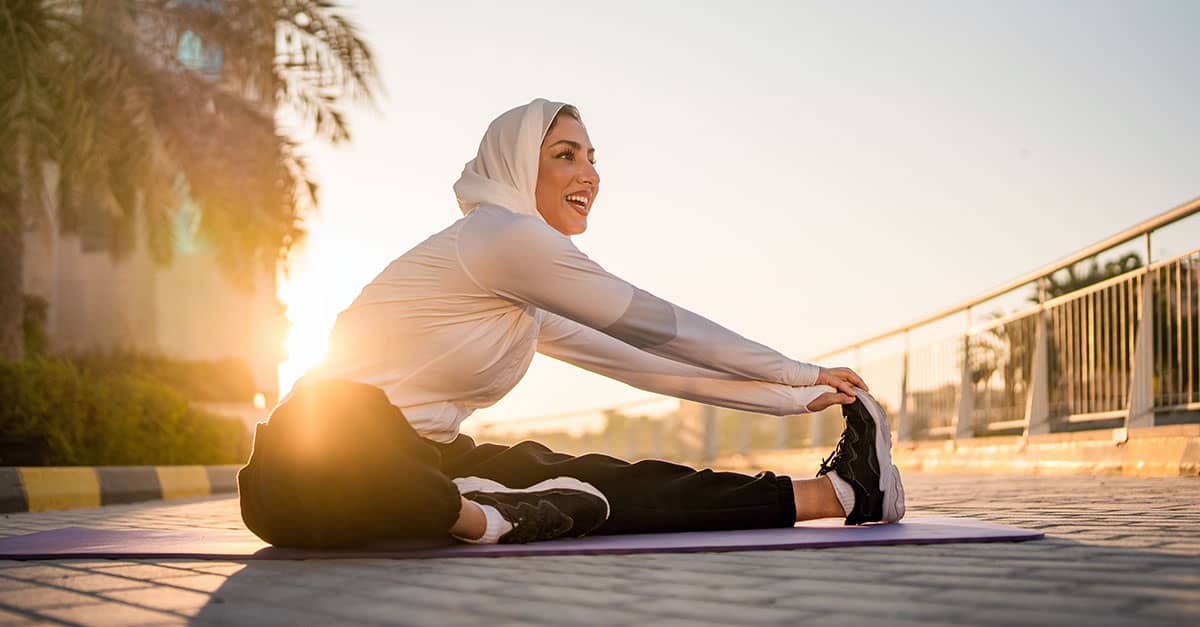If there was ever a time to find your inner Zen -- and have an excuse to keep your kids quiet for a few minutes -- now is the time. Meditation is a great way to de-stress no matter how old you are, and it has many benefits for your physical and mental health. If you’ve toyed with the idea of trying out meditation, here are a few tips to help you and your kids get started.
The Benefits of Meditation
Meditation is defined as the practice of training your mind to redirect and focus your thoughts. It can be used to increase awareness but also has several benefits to your overall health and wellness. These benefits include:
- Reduction in stress - To say that times are tough is an understatement and everyone can use some ways to healthily cope with stress. Meditation has been shown to reduce mental stress and lower levels of the stress hormone cortisol in your blood. A constant stream of cortisol in your bloodstream can promote inflammation, promote anxiety and depression, increase your blood pressure, and even make sleep more difficult.
- Get a grip on anxiety - What could be more anxiety-inducing than the world we live in? If you can lower stress in your life through practices such as meditation, then you can control anxiety too.
- Promotion of healthy emotions - Meditation can also make you feel better about yourself and give you a more positive outlook. In fact, studies have found a connection between practices such as meditation and mindfulness and decreased depression.
Meditation Tips for Beginners
You may have tossed around the idea of meditation for a while now but haven’t been sure where to start. It can be daunting to start a new practice such as this when you don’t have any idea what to do, but it’s not as difficult as you may think to take a few minutes out of each day to meditate. Here are some tips to help you get started.
Prepare
Before you begin to meditate, prepare your body. You can do this by making sure to silence your smartphone and any other distractions, warm up your body with some light exercise, stretches, or yoga, and take a few simple breathing exercises to find your center.
Sit Down
Are you sitting? Well, for meditation you should be. Meditation is something you do consciously, so laying down may not be the best position because it’s the position in which you fall asleep. Standing or walking keeps your mind active, so the best policy is to simply sit.
Breathe
Meditation is all about breathing. It can be tricky because it’s not actually about practicing any particular breathing technique as you meditate since it can keep your mind engaged. Instead, simply relax, keeping your breath light and even, learning to sink into the headspace between the breaths to enjoy a quiet mind.
Relax the Eyes and Face
As you meditate, your eyes should be closed to help block out the outside world. Your face should be relaxed, too.
Your Thoughts
When it comes to thoughts during meditation, you simply have to go with the flow. It’s OK if some thoughts about your day or work deadlines sneak in from time to time, but when you notice it starting you should redirect yourself. Don’t go into meditation to try to have an empty mind, that’s not the point. Instead, let your thoughts come and go as long as you stay relaxed the entire time. Feel free to reflect on the places your mind takes you -- that’s what meditation is all about.
It may be easiest to start with a few meditation techniques. Simply find one that works for you and go with it.
When to Meditate
Some times are better to meditate than others. Endeavor to meditate during a time your mind is tired and needs a break, such as in the mid-afternoon or evening. Some people like to meditate early in the morning to set themselves up for the day. There are no rules to meditation, simply do it when the time feels right for you.
Where to Meditate
Where you meditate is important, so make sure to choose a quiet place you feel comfortable in. You can wrap yourself in a blanket or sit on a chair or pillow. Whatever makes you comfortable and allows you to focus on your mind and not discomfort.
Tips for Helping Kids Learn to Meditate
Believe it or not, helping your child learn to meditate isn’t the herding cats experience you might imagine. You simply have to make sure what you’re trying to teach them is appropriate for their age. For children, the point of meditation is to help them learn to relax and breathe deep -- even if for only a few minutes.
For Kids 3 to 7
Kids in this age group might find meditation a bit boring, so using songs or other activities is key. Children this age do well with guided relaxation exercises that include things such as the lotus breath or creating a meditation jar. You can also teach them fun breathing techniques to help lay the foundation for meditation as they grow older. And remember, children should only be expected to practice mindfulness and meditation exercises (e.g., stay still) for only one minute for every year of their age. So don’t expect more than your kids can give developmentally.
For Kids Older Than 8
Hopefully, kids in this age group can move on to more advanced techniques, such as bear breath, to help them deal with anxiety and stress. Older kids can practice relaxation and meditation techniques at any point in the day that they need to feel calm and focus. You may also want to expose them to calming guided meditations; you can easily find guided visualization apps to let them do on their own time and in their own space, or you can do the guided visualizations together.
Meditation is a great way to feel calm, peaceful, and in control when the world around you is not. Plus, it’s something the whole family can enjoy. Why not give it a try?
The information, including but not limited to, text, graphics, images and other material contained on this page are for informational purposes only. The purpose of this post is to promote broad consumer understanding and knowledge of various health topics, including but not limited to the benefits of chiropractic care, exercise and nutrition. It is not intended to provide or be a substitute for professional medical advice, diagnosis or treatment. Always seek the advice of your chiropractor, physician or other qualified health care provider with any questions you may have regarding a medical condition or treatment and before undertaking a new health care regimen, and never disregard professional medical advice or delay in seeking it because of something you have read on this page.



